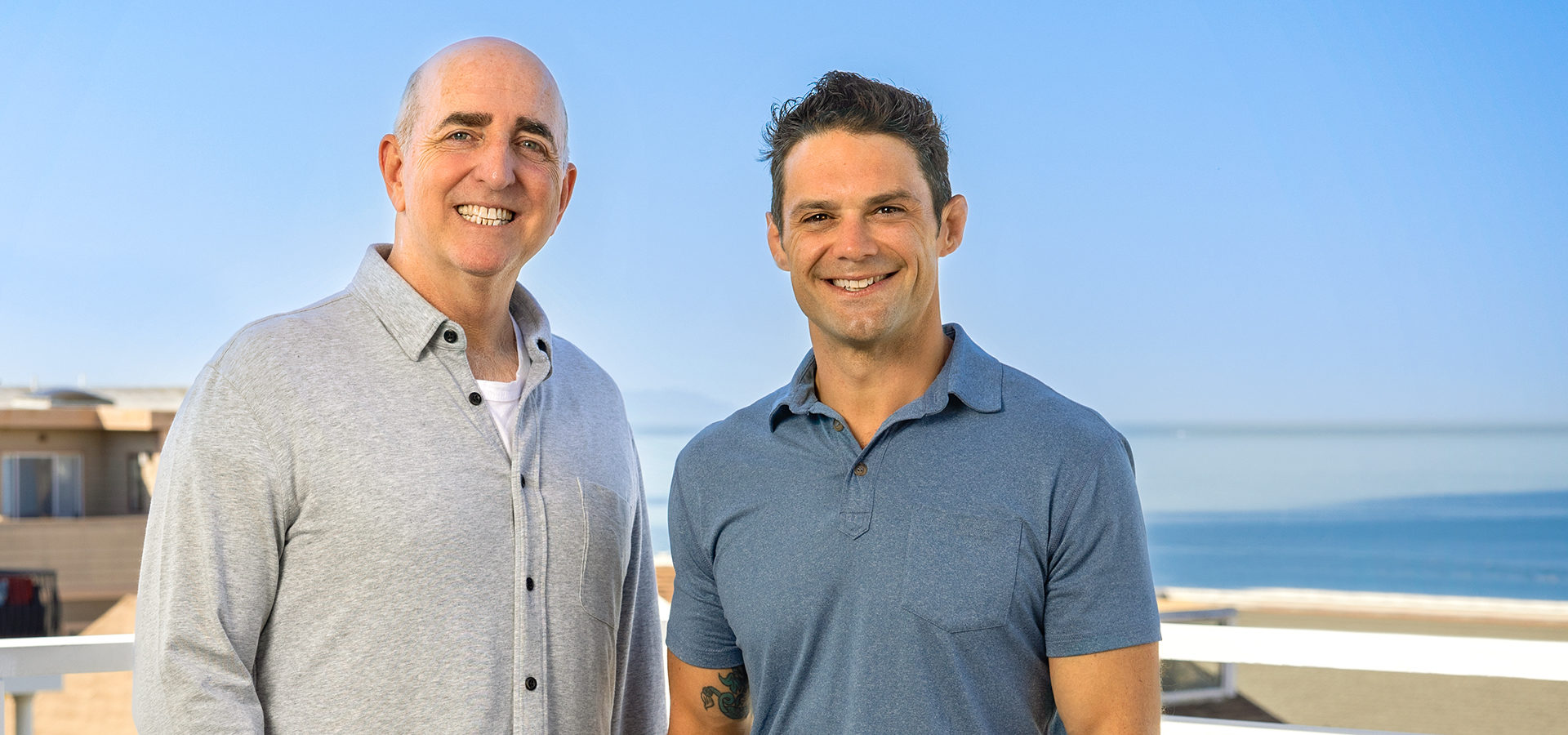Selling Point
Local wealth advisors guide clients on when, why and how to sell their business.
- CategoryAdvertorials, People
- Photographed bySiri Berting
When it’s time to sell your most valued asset—your business—the right team and the right planning can make all the difference. Private wealth financial advisors Jeff Germain and Vinnie DiCarlo have more than 45 years of diverse financial advising experience, including generational wealth management and financial and tax planning, which truly separates their team from other advisory groups. Wells Fargo provides Jeff and Vinnie with resources that help them present timely solutions aligned with their clients’ goals.

Is It Time?
“One of the most common conversations we have had with clients and prospects over this past year has been whether or not it’s the right time to sell,” Jeff states. Market conditions in 2021—combined with the concern for potentially higher tax rates in 2022—led to an increase in merger and acquisition activities, and that elevated pace has continued this year.
So is it time to sell your business? “There are a number of topics for founders and their families to consider beyond just the valuation of the company,” says Jeff. “We’re here to guide families through these discussions, prioritize their goals, build a plan and, when necessary, build an advisory team to help them transition from business operators to managers of their family wealth.”
Important factors to keep in mind include trends in your company’s industry, valuation multiples, available purchasers, management succession planning and the owner’s future cash needs. Also consider your on-going role with the buyer and the role other family members and management have in the business after a sale.
“Selling is a big decision,” Vinnie points out. “Founders put years of hard work and untold hours into building a business. The company becomes part of their identity. To some, the company is one of their children. They care about their employees and the continued legacy of the business after they exit. It can be a very emotional process for the founder and their families, above and beyond the technical aspects of the deal.”
•••
Team-Building
Jeff and Vinnie frequently have clients or prospects ask for introductions to other professionals to build their team—accountants, attorneys, investment bankers. They consider various factors when identifying other advisors: Who has the appropriate experience within the client’s specific industry and can identify potential suitors? What are the company’s market capitalization and geographic location?
“We have an extensive network of advisors whom we have worked with for years and can confidently introduce to our clients,” Jeff says. “We also consider the intangibles. Selling a company can be very stressful and will require hours of teamwork, communication and coordination. Knowing our clients and understanding their personalities and dispositions allow us to better identify professionals whom they will be able to relate to. This helps ease the human aspect of the deal process.”

Jeff and Vinnie pride themselves on advocating for their clients. By understanding each client’s desired outcome, they can work with their advisors to implement planning suggestions.
“Investment bankers bring the company to market,” Jeff explains. “Attorneys and accountants negotiate the contracts, focusing on the economics of the deal. We focus on the founders and their families. We have a discovery process and moderate conversations with the family to identify and prioritize their financial goals and vision for their family governance. We take our time to educate our clients about the pros and cons of various techniques we propose for their needs so they can be more confident in their decisions.”
Although Vinnie no longer practices tax compliance, his background in tax and planning helps the team look at the full picture of the sale process through the seller’s eyes. “Too frequently sellers wait until it’s too late to engage in presale planning conversations or to incorporate techniques that can have a significant impact before a letter of intent is signed, such as gifting to family members using valuation discounts or integrating philanthropic vehicles like charitable trusts or donor-advised funds.”
He shares that some of the techniques they propose can be complex and require time to educate the client. It’s important to give them that time so they can weigh their options before choosing a path.
“It can feel very daunting to trade a business you have control over for a lump sum of cash and to have to build a plan to invest the proceeds to maintain your family’s lifestyle,” Vinnie says. “We’re here to guide our clients through that transition so they can feel confident in the investment plan we develop with them.”
“It’s never too soon to start presale planning, but it can be too late!” says Jeff. “My advice is to have these conversations and understand what tools and techniques are available now. There’s no harm in being educated early.”
RECOGNITION & DESIGNATIONS
Jeffrey R. Germain, CIMC® Managing Director – Investments
- Best-in-State Wealth Advisor, Forbes: 2020, 2021, 20221
- Top 1,200 Advisors, Barron’s: 2019, 2020, 2021, 20222
Vincent DiCarlo, CFP®, ChFC® Senior Vice President – Investments
- Best-in-State Wealth Advisor, Forbes: 20201
- Certified Public Accountant (nonpracticing)
- Master of Business Taxation 8/2011 – University of Southern California
- The Forbes Best-in-State Wealth Advisors ranking algorithm is based on industry experience, interviews, compliance records, assets under management, revenue and other criteria by SHOOK Research, LLC, which does not receive compensation from the advisors or their firms in exchange for placement on a ranking. Investment performance is not a criterion.
- The Barron’s Top 1,200 Advisors rankings are based on assets under management, revenue generated for the advisors’ firms, and the quality of the advisors’ practices. Investment performance isn’t an explicit factor because clients have varied goals and risk tolerances.
The Germain DiCarlo Wealth Management Group of Wells Fargo Advisors
Jeffrey R. Germain, CIMC® | Vincent “Vinnie” DiCarlo, CFP®, ChFC®
2141 Rosecrans Ave., Suite 4100 El Segundo | 310-426-3924 | germaindicarlo.com
Disclaimer: Wells Fargo Advisors is not a legal or tax advisor. Wells Fargo Advisors is a trade name used by wells Fargo Clearing Services, LLC, Member SIPC, a registered broker-dealer and non-bank affiliate of Wells Fargo & Company.











